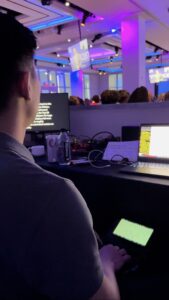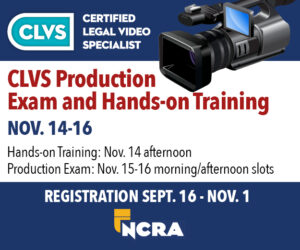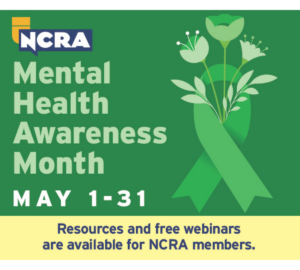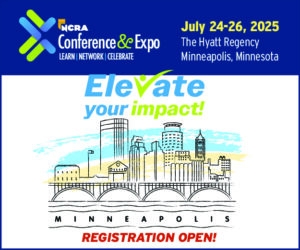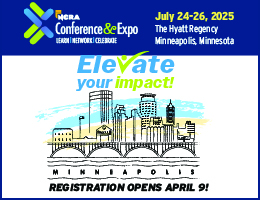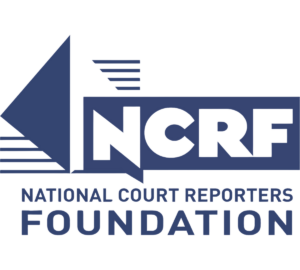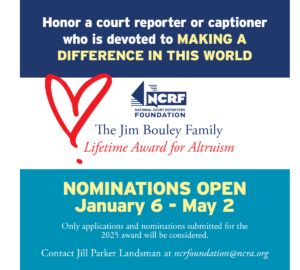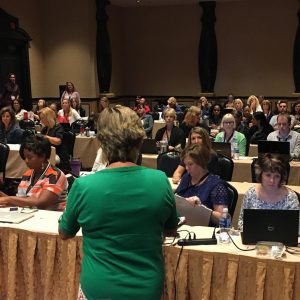
By Carol Studenmund
At the NCRA Convention & Expo in Las Vegas, the Certified Realtime Captioner (CRC) Certification Committee hosted the third annual CRC Workshop. For one-and-a-half days, six members of the CRC Committee taught 68 registrants both beginning and advanced lessons regarding broadcast and CART captioning. The Written Knowledge Test was offered immediately following the workshop. The CRC Workshop is one of three requirements of the CRC program, along with a Written Knowledge Test and a Skills Test.
NCRA members are seeing more and more requests from clients that captioners hold national certifications, and many of these clients want to see copies of certifications. This demand comes from local governments, educational institutions, and judicial systems that need to meet ADA requests from the public.
Instructors Heidi Thomas, FAPR, RDR, CRR, CRC; Deanna Baker, FAPR, RMR; Karyn Menck, RDR, CRR, CRC; LeAnn Hibler, RMR, CRR, CRC; Stacey Potenza, CRC; and myself had way too much fun sharing our decades of experience in the captioning world. Our collective experience covers broadcast, education, theater, sports, stadium, high-tech, business, and web-based captioning. The purpose of the CRC Workshop is to provide both beginning and experienced captioners exposure to all aspects of this exciting field. Even though captioning is a well-established field, it is still relatively young compared to court reporting. Some captioners may be well versed in local news captioning and know nothing about educational or religious captioning, and vice versa.
Since the first CRC Workshop in New York City in 2015, the number of attendees has increased each year. This year, the increase was influenced by the Dec. 31, 2017, deadline for a large group of Certified Realtime Reporter (CRR) holders. Members who passed the CRR Skills Test before Nov. 1, 2011, can earn the CRC by attending the CRC Workshop and passing the Written Knowledge Test before Dec. 31, 2017. Through November 2011, the CRR Skills Test consisted of literary material, just like the CRC Skills Test (the CRR Skills Test is now testimony material). The last opportunity in 2017 to take the CRC Written Knowledge Test is in October. Registration closes Sept. 30.
The CRC Workshop is also available online as a package of nine modules. Members who earned the CRR before 2011 and want to earn the CRC by Dec. 31 may watch the online workshop.
Our team of instructors knows only too well how quickly technology changes in the world of captioning. But the one aspect of captioning that remains the same is the need to write cleanly and conflict free. The CRC Workshop includes instruction about basic realtime writing for captioning. We cover the need to use prefixes and suffixes along with basic root words. We also talk about the never-ending need to prepare for upcoming assignments.
Technology has expanded the field of captioning from TV encoders to the internet. New platforms for online meetings develop every year. Competing caption streaming services bring new solutions that expand our capabilities all the time. Our instructors tried to cover the various methods of displaying our captions with an eye to future developments.
The captioning world grows every year, and the demand for qualified captioners is stronger than ever. Our committee looks forward to welcoming more and more Certified Realtime Captioners in the coming year.
Carol Studenmund, FAPR, RDR, CRR, CRC, is a broadcast captioner in Portland, Ore., and co-chair of the NCRA Certified Realtime Captioner Certification Committee. She can be reached at cstudenmund@LNSCaptioning.com.
